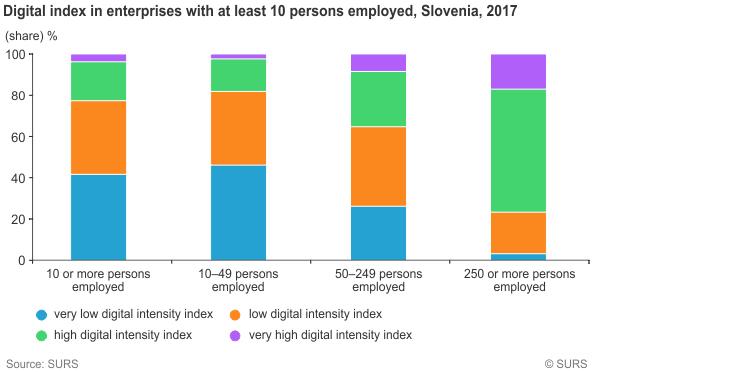


The emphasis of the World Telecommunication and Information Society day is on the potentials of artificial intelligence that has the ability to learn also on the basis of the data that are created by 68% of daily Internet users and by 73% of people using smartphones.
17 May is the World Telecommunication and Information Society day. This year the International Telecommunication Union (ITU) emphasises the potentials of artificial intelligence (AI).
Artificial intelligence (AI) refers to systems that display intelligent behaviour and the ability to learn with data analysis to achieve specific goals. It can be software that uses machine learning (learning based on data) such as virtual assistants Siri, Cortana, Amazon’s Alexa, etc., Internet browsers Google, Microsoft Edge etc., systems for face recognition, etc. It can be embedded in hardware devices, e.g. advance robots, autonomous cars, drones, applications of Internet of Things, etc. In recent years significant improvements have been made in the usage of artificial intelligence which was made possible by more powerful computers, cloud computing and endless amounts of data, big data that we leave and generate in the digital world.
In the first quarter of 2017 68% of persons aged 16–74 used the Internet every day or almost every day (in EU-28: 72%). 51% of persons employed in enterprises with at least 10 persons employed used computers with Internet access at their work, which is the same as the EU-28 average.
45% of 16–74-years-olds had their profiles on social networks, e.g. on Facebook, Instagram where they sent messages, arranged their profile (in EU-28: 54%), and 7% on professional networks, e.g. Linkedln (in EU-28: 13%). 28% of them uploaded and shared with other self-created photos, text, etc. (in EU-28: 33%).
47% of enterprise with at least 10 persons employed used social media, which is the same as the EU-28 average. 45% had a profile on social networks (the same as the EU-28 average), 7% had their blog or microblog, e.g. on Twitter (in EU-28: 14%) and 17% a profile on multimedia content sharing websites, e.g. on YouTube, Instagram (in EU-28: 16%).
Artificial intelligence is part of our lives
We use artificial intelligence when we use Internet browsers for searching information on the Internet. In the first quarter of 2017 69% of 16–74-years-olds obtained information about goods or services (in EU-28: 65%), 54% health-related information, e.g. information about injuries, diseases, nutrition (in EU-28: 51%) and 61% read online news, newspaper or news magazines (in EU-28: 61%).
We use artificial intelligence when we use online translation tools and when we block unwanted electronic messages (spam) – 69% of 16–74-year-olds sent or received e-mails (in EU-28: 72%).
When shopping online, the share of which is increasing, it offers us the option to buy an extra product in the online store «Persons who bought this product also bought …» and in the future it will provide help to online shoppers in the form of virtual assistants. In the first quarter of 2017 46% of 16–74-years-old answered that they purchased online in the last 12 months (in EU-28: 57%).
On the basis of the digital traces we leave on the Internet artificial intelligence can identify our tastes, lifestyle and can influence our behaviour, e.g. by submitting suggestions for listening music, watching videos or by providing news, etc.
Smartphones and artificial intelligence
73% of 16–74-year-olds in Slovenia used smartphones in the first quarter of 2017. 96% of those individuals used them for taking photos (as a camera), 82% as a calendar and 80% for browsing online. 53% of the users were listening to music or radio via smartphone or used maps or navigation and 26% for playing games on smartphone.
Many smartphone users use artificial intelligence in virtual assistants, e.g. Siri, Bixby or as face recognition software, software to convert voice commands, etc.
E-skills, digitalisation and ICT specialists a precondition for the usage and for exploiting the benefits of artificial intelligence
With the further digitalisation of the society – automatization, introduction of robots and the spared of the usage of artificial intelligence – e-skills will become crucial for the usage of information-communication technologies (ICT). In 2017, 30% of individuals aged 16–74 years had above basic e-skills (in EU-28: 31%), 24% had basic e-skills (in EU-28: 26%), 24% had low e-skills (in EU-28: 26%) and 22% had no e-skills (in EU-28: 17%). You can read more about the e-skills in Slovenia in the release Safer Internet Day 2018 and e-skills.
Enterprises will have to continue to digitize their business processes for the sake of competitiveness, so that they will be able to take advantage of the business opportunities that ICT can offer. The rate of digitization of enterprises is monitored by the digital intensity index, which consists of 12 indicators used to monitor the use of ICT in enterprises in an individual year. In 2017 most of the enterprises with at least 10 persons employed (42%) had a very low digital intensity index; 35% of enterprises had a low digital intensity index, 19% had a high digital intensity index and 4% had a very high digital intensity index. You can read more about the digitalization in the release The rate of digitization of enterprises with at least 10 persons employed in 2017.
ICT specialists play a key role in the development and implementation of artificial intelligence. In 2017, 19% of enterprises with at least 10 persons employed employed ICT specialists, which is the same as the EU-28 average. 27% of enterprises provided in 2016 to their persons employed any type of training to develop ICT related skills (in EU-28: 21%), 13% to their ICT specialists employed (in EU-28: 10%) and 23% to other persons employed (in EU-28: 19%).
In 2017 there were around 36,100 ICT specialists employed in Slovenia, which is 3.8% of all persons employed. The majority of ICT specialists among all persons employed where in Finland with 6.8%; the share was the lowest in Greece (1.6%).
84% of ICT specialists in Slovenia were male and 16% female; the majority was aged 35 years or more (64%) and 36% were aged 15–34 years.
To take advantage of artificial intelligence, we will have to:
- Continue with the digitization in all areas of society
- Provide lifelong learning in the use of ICT and increase e-skills
- Establish appropriate legislation to prevent its abuse


































































